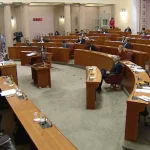Parliament will debate the amendments in the autumn.
Speaking to the press after a meeting of the parliamentary majority, Bačić said they talked about the problem of restricting shopping hours until 9 pm, notably during the summer tourist season, when they have the biggest turnover.
“We must take account of the international convention on the rights of shop workers to daily and weekly rest,” Bačić said, adding that it was important to reach as much consensus as possible with those to whom the law applied.
“We’ll take into account rest and adjusting shopping hours to seasonal activities across Croatia. We’ll give employers the possibility to decide how many Sundays in the year they will work.”
Reformists president Radimir Čaćić pushed for as much flexibility regarding shopping hours as possible, saying that family firms should be allowed to work when and how long they wanted.
He praised the proposal by Silvano Hrelja of the Croatian Pensioners Party “not to define shopping hours but the number of non-working hours, to say that a shop must have eight non-working hours. That’s very good as it allows everyone to organise themselves as they wish.”
Bačić said the parliamentary majority also talked about plans to make job-keeping payments in sectors affected by the epidemic conditional on worker vaccination, adding that the purpose was to stimulate employers with a high vaccination rate “for contributing to curbing the epidemic as soon as possible.”
He said the government was not shifting responsibility to employers and that measures to that effect would be agreed by the government, the social partners and legal experts, taking Croatia’s economic interest into account.
For more about politics in Croatia, follow TCN’s dedicated page.











